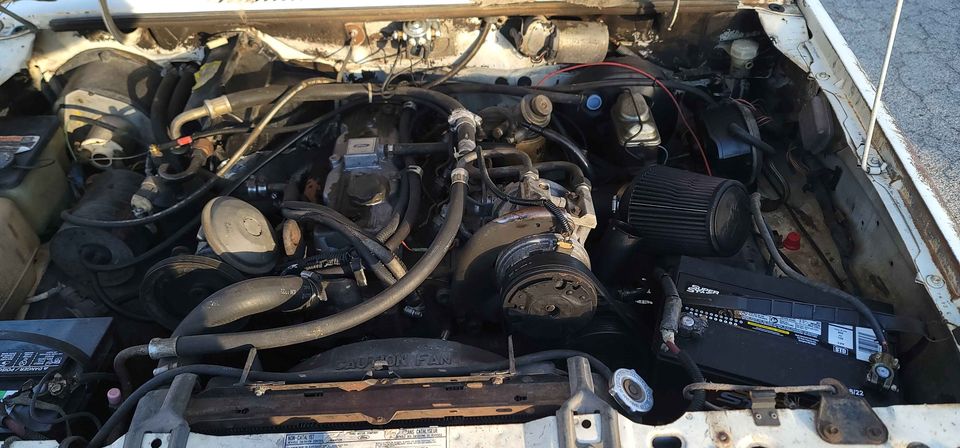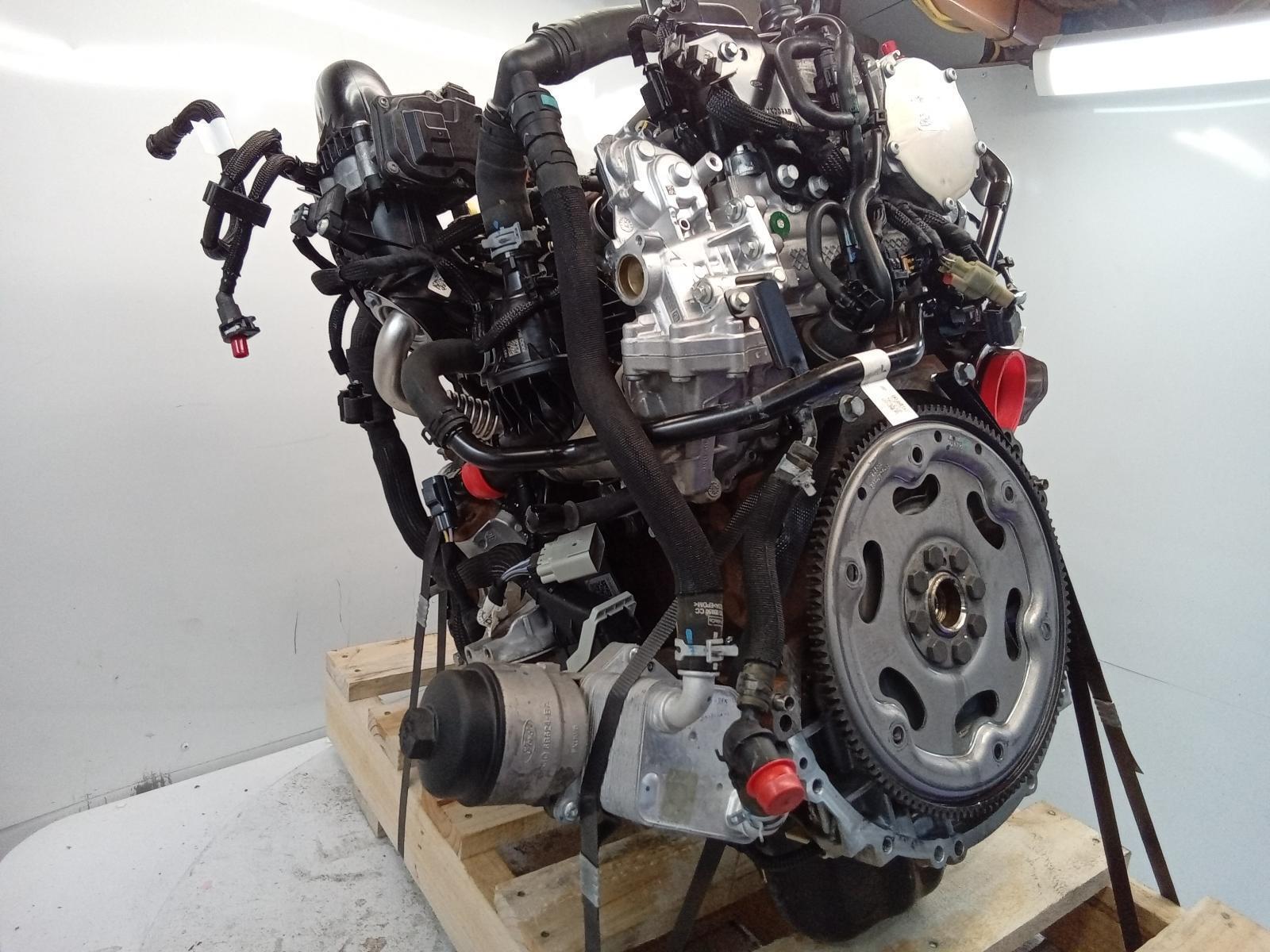Just How to Choose the Right Auto Engine for Maximum Efficiency and Effectiveness
Selecting the appropriate car engine to attain an ideal balance of efficiency and performance requires a nuanced understanding of various engine types and their certain features. Variables such as engine displacement, the number of cylinders, and fuel kind play a crucial function in identifying both power outcome and gas economic situation. While some may lean in the direction of performance-driven options, others could prioritize sustainability and effectiveness. Understanding these dynamics is important; however, the challenge hinges on straightening these attributes with your private driving needs and choices. What factors to consider will inevitably lead your choice?
Comprehending Engine Types
When selecting an automobile, one of the most crucial elements to think about is the engine type, which functions as the heart of the vehicle. The engine type considerably affects the vehicle's general performance, long life, and viability for your driving demands. There are mainly 3 engine kinds to think about: inner combustion engines (ICE), hybrid engines, and electric engines.
Inner combustion engines stay one of the most common, operating on gas or diesel. They are recognized for their power and acceleration, making them ideal for performance-oriented lorries. They may fall short in fuel efficiency and environmental influence.
Crossbreed engines incorporate an inner combustion engine with an electrical motor, providing an equilibrium in between performance and gas economic climate. They are significantly preferred for chauffeurs seeking lowered emissions while still delivering ample power.
Electric engines, powered completely by batteries, are obtaining traction due to their environmental advantages and lower running prices. They provide instantaneous torque and a quiet driving experience, making them optimal for city travelling.

Performance vs. Performance
Choosing the ideal engine type includes considering the compromises in between performance and efficiency. Efficiency typically describes how well an engine can supply power and velocity, which is often related to bigger variation engines or those with turbocharging abilities. These engines generally provide exciting driving experiences and quick reaction times, making them preferred among fanatics.
On the other hand, effectiveness concentrates on gas economic climate and reduced emissions. Smaller sized engines, specifically those geared up with advanced innovations such as direct gas injection and variable valve timing, tend to provide better miles per gallon and minimized carbon impacts. While these engines may give up some power compared to their larger equivalents, they frequently master everyday driving scenarios where high efficiency is not always required.
Inevitably, the choice between performance and effectiveness depend upon individual concerns. A driver who values perky driving could focus on a high-performance engine, while a person looking for cost-effective travelling may favor a reliable choice. Understanding these compromises is important for making an educated decision that lines up with your driving needs and lifestyle, guaranteeing that the selected engine kind complements your expectations for both efficiency and efficiency.
Secret Specifications to Consider
Comprehending vital specifications is important for making a notified decision concerning the best automobile engine. When choosing an engine, numerous critical factors require factor to consider to ensure optimal performance and performance.
It suggests the overall quantity of the engine's cyndrical tubes and typically associates with power output; bigger displacements usually generate even more power. Engines with more cylinders can provide smoother procedure and greater power, while smaller sized configurations can enhance fuel effectiveness.
Additionally, the engine's setup, whether inline, V-type, or rotating, influences the total layout and efficiency attributes of the automobile - 2.2 ford ranger engine. Turbocharging and turbo charging innovations ought to additionally be reviewed; these boost an engine's power outcome without considerably enhancing its size, thus improving efficiency
Gas type is one more vital factor to consider, as it affects both performance and costs. Finally, the engine's compression ratio influences efficiency and power distribution; a greater ratio typically results in better effectiveness, yet may require superior fuel. By thoroughly assessing these specs, you can choose an engine that straightens with your efficiency official source and effectiveness objectives.
Reviewing Driving Requirements
Assessing driving demands is an essential action in establishing the right cars and truck engine for your way of living and usage patterns. Begin by analyzing your daily driving habits, including the frequency and period of trips. If your driving largely contains short commutes in metropolitan settings, a smaller sized engine with excellent gas efficiency might be adequate. Alternatively, if you frequently carry out long-distance trips or need towing abilities, a more powerful engine might be essential.
Consider the terrain you commonly browse. Hilly or tough landscapes might require an engine with higher torque for far better efficiency. In addition, show on passenger and cargo needs; larger family members or those that transfer my latest blog post products may benefit from cars with raised power and ability.
Diesel engines often provide remarkable torque and gas economy for heavier cars, while fuel engines might provide a smoother and quieter adventure. Aspect in ecological considerations, as hybrid or electrical engines can give a much more sustainable choice without sacrificing efficiency.
Future Trends in Engine Technology
As the automotive industry remains to develop, technologies in engine modern technology are leading the way for more sustainable and efficient driving experiences. One substantial trend is the change toward electrification, with hybrid and fully electrical powertrains acquiring importance. Automakers are spending greatly in battery innovation to improve energy thickness and reduce charging times, ultimately improving the practicality of electrical cars (EVs)
An additional arising trend is the advancement of hydrogen gas cell engines. 2.2 ford ranger engine. These systems supply the possibility for zero-emission driving while offering refueling times equivalent to typical gas engines. In addition, improvements in burning technology, such as variable compression proportions and boosted turbocharging, are enhancing standard inner burning engines for far better efficiency and performance
Digital assimilation is likewise a vital element of future engine innovation. The execution of fabricated knowledge and device learning permits for real-time information evaluation, enabling smarter engine monitoring systems that adapt to driving conditions and boost fuel performance.

Verdict
Finally, picking the proper vehicle engine demands a detailed evaluation of numerous aspects, consisting of engine type, efficiency demands, and efficiency objectives. By understanding the distinctions between different engine kinds and considering click over here now vital specs, individuals can straighten their options with certain driving needs. As improvements in engine innovation proceed to arise, staying educated about future patterns will even more boost decision-making, eventually resulting in a vehicle that balances efficiency and fuel efficiency properly.
Selecting the suitable cars and truck engine to accomplish an ideal equilibrium of efficiency and performance necessitates a nuanced understanding of numerous engine kinds and their details qualities. There are largely three engine types to consider: interior combustion engines (ICE), hybrid engines, and electric engines.
Performance usually refers to exactly how well an engine can deliver power and acceleration, which is commonly associated with bigger displacement engines or those with turbocharging abilities. Diesel engines usually supply superior torque and fuel economy for larger vehicles, while gasoline engines might give a smoother and quieter trip.In final thought, choosing the ideal car engine necessitates a thorough assessment of various variables, including engine type, performance needs, and performance objectives.